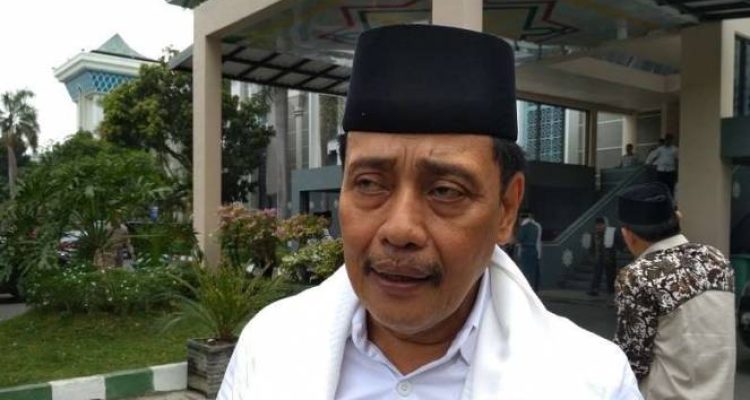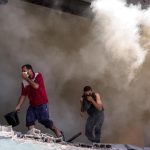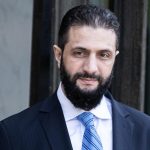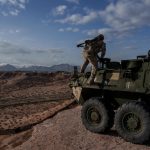News Feed
Semua Kabar
CBS News’ producer in Iran on seeing the war coming, and an uncertain future
June 30, 2025 / 10:54 AM EDT/ CBS News
Tehran— Seyed Rahim Bathaei has long been CBS News' eyes and ears inIran. For 16 years, he's helped us introduce our audience to regular Iranians who've shared their hopes and fears.
For all of those years, Iranian society has been divided between those who ardently support the Islamic Republic's theocratic rulers, and those who do not. Yet after 12 days of devastating war with Israel, CBS News has seen a level of national unity that wasn't there before.
"Iran is an ancient country with an ancient civilization, more than 5,000 years of history. They want to preserve it," Bathaei explains of his fellow Iranians. "They say: 'We are the nation. We have a national identity. Don't smash — don't try even to smash — or don't insult our pride and this deep civilization.'"
For Bathaei, the military clash between the Middle East's archrivals had felt inevitable for some time.
"I was expecting this," he says. "Iran has had this strong belief to support Palestinians and the Palestinian cause, and has not been shy to project it quite openly. So, it was obvious at some point — no one knew when — but this would come, that Iran and Israel would go on a direct war, direct confrontation instead of proxy wars. On Israel's side, doingassassination, covert operations, and on the Iranian side, fighting against Israel through what is called nowadaysIran's proxy groups. So, at some point, it was quite inevitable that both countries would have come to this boiling point."
Israel, backed by its close ally the U.S., may well have the military capacity to bring down the government led by Ayatollah Ali Khamenei. But Bathaei says such a move — which President Trumpclaims to have personally preventedduring the 12 days of fighting — would have serious consequences beyond Iran's borders.
"That would be a disaster. We have already seen what happened in Libya, what happened to Syria. Iraq, actually, is a big example for us. That's a disaster for the region," he says. "There will be a failed state that there might be terrorism coming out of."
That threat may no longer feel imminent, and the ceasefire President Trump brokered between Iran and Israel has held for nearly a week, but Bathaei — relying entirely on gut feelings that come from more than 35 years as a journalist in Iran — still struggles to find optimism.
"I think we are going toward darker things," he says. "I'm not a fortune teller, but my instinct tells me, yes, we are going toward darker things. But I strongly I hope I'm wrong."
One thing did surprise Bathaei during the war with Israel: President Trump ordering U.S. warplanes to join in the bombing of Iran's nuclear facilities.
"President Trump was full of surprises," he says. "I was not thinking that he might have gone that far."
"I don't think the Iranian leadership were ready, or believed that the U.S. might attack Iran on that level," adds Bathaei.
Now, he's worried that the U.S. could attack Iran again.
The solution, Bathaei believes, is for both sidesto sit down and talk it out.
"They're not talking to each other. If they sit down and start a conversation or even visit each other — I mean, Iranian politicians go and visit the U.S., U.S. politicians coming here and visit Iran — I believe a big portion of this misunderstanding can be eliminated. I'm not saying Iran and the U.S. will go be a friend, be allies, in the near, foreseeable future, but I think it's not something impossible."
It is a desire for peace that has been echoed by many people CBS News has spoken with in Iran, and they all hope it is heard by the leaders in Tehran, Tel Aviv, and in Washington.
Agnes Reaucontributed to this report.
Imtiaz Tyab is a CBS News senior foreign correspondent based in London and reports for all platforms, including the "CBS Evening News," "CBS Mornings," "CBS Sunday Morning" and CBS News 24/7. He has extensive experience reporting from major global flashpoints, including the Middle East and the war on terror.
© 2025 CBS Interactive Inc. All Rights Reserved.
U.S. revokes U.K. band’s visas over anti-Israel chant at Glastonbury
Updated on: June 30, 2025 / 12:12 PM EDT/ CBS News
London— The BBC has said it regrets not pulling down its live stream of a performance at the Glastonbury music festival over the weekend that included what the broadcaster calls "utterly unacceptable" chants againstIsrael's military.
The taxpayer-funded BBC said in a statement Monday that it regrets not cutting short its live streaming signal after punk-rap duo Bob Vylan started leading a chant of "Death, death to the IDF," during their Saturday performance, referring to the Israel Defense Forces.
"The BBC respects freedom of expression but stands firmly against incitement to violence," thestatementfrom the broadcaster said. "The antisemitic sentiments expressed by Bob Vylan were utterly unacceptable and have no place on our airwaves… The [BBC broadcasting] team were dealing with a live situation but with hindsight we should have pulled the stream during the performance. We regret this did not happen."
The BBC, which is CBS News' partner network in the U.K., quickly acknowledged that the language used on Saturday was "deeply offensive," but the network was criticized — including by Prime Minister Keir Starmer and members of his cabinet —— for not reacting more quickly after the chant started.
Glastonbury festival's organizers also condemned the chant in a statement, saying: "Their chants very much crossed a line and we are urgently reminding everyone involved in the production of the festival that there is no place at Glastonbury for antisemitism, hate speech or incitement to violence."
The reaction from the Trump administration appeared to be significantly harsher, with Deputy Secretary of State Christopher Landausaying in a social media poston Monday that U.S. entry visas already issued to Bob Vylan's members had been revoked "in light of their hateful tirade at Glastonbury, including leading the crowd in death chants."
The band's website shows more than a dozen scheduled tour dates in the U.S., from coast to coast, starting in late October.
"Foreigners who glorify violence and hatred are not welcome visitors to our country," Landau said in the post.
On Sunday, Bob Vylan posted a lengthy statement on theirInstagrampage, with the caption: "I said what I said."
The duo, who use stage names and keep their identities anonymous, said their message was aimed at younger generations, whom they said should be shown how to fight for their own futures.
"Let us display to them loudly and visibly the right thing to do when we want and need change," the band said. "Let them see us marching in the streets, campaigning on ground level, organizing online and shouting about it on any and every stage that we are offered."
Local police have launched an investigation into the chants to determine whether any criminal offenses may have been committed.
Glastonbury is a five-day music festival that takes place on a farm in the southwest of England. It is one of the largest music festivals anywhere in the world, drawing more than 200,000 ticketholders, and it generally takes place every other year as the organizers give the farm fields time to recover from the impact of so many revelers. The event is hosted and organized by the Eavis family, who still own the farm, and has been running for about 55 years.
Bob Vylan's performance preceded that of Northern Irish rappers Kneecap, whose set the BBC did not air live due to previous instances at the group's concerts involving alleged comments supporting Hamas and Hezbollah andcalling for the death of Conservative party lawmakers.
Kneecap's members have insisted that they "do not, and have never, supported Hamas or Hezbollah."
They sent "heartfelt apologies" to the families of two British lawmakers who were murdered in recent years after their remarks about Conservative parliamentarians.
Emmet Lyonscontributed to this report.
Frank Andrews is a CBS News journalist based in London.
© 2025 CBS Interactive Inc. All Rights Reserved.
Man convicted of 1967 murder in one of U.K.’s oldest cold cases
June 30, 2025 / 12:58 PM EDT/ CBS/AP
A 92-year-old man on Monday was convicted of the rape and murder of a woman in southwestern England in what is thought to be the U.K.'s longest-running cold case ever to be solved.
A jury at Bristol crown court found Ryland Headley, then aged 34, guilty of attacking 75-year-old Louisa Dunne in June 1967.
"Louisa Dunne died in a horrifying attack carried out in the place where she should have felt safest — her own home," prosecutor Charlotte Ream said. "For 58 years, this appalling crime went unsolved and Ryland Headley, the man we now know is responsible, avoided justice."
Dunne was found dead in her home by a neighbor on June 28, 1967. The night of her death, neighbors reported hearing a woman's "frightening scream," the BBCreported.
The cause of her death was found to be strangulation and asphyxiation. She had also been raped.
It is "one of the oldest cold cases to ever be solved in the U.K.,"said the Crown Prosecution Service(CPS), which brings criminal prosecutions.
Investigators retained Dunne's clothing,including a blue skirt, and other samples from her body for further examination. They also recovered a palm print from a window which Headley is believed to have used to gain entry to her home.
Despite the efforts of police investigating Dunne's death 58 years ago, no key suspect was identified,the BBC reported. Police collected about 19,000 prints from men and boys at the time with no success.
In 2023, the case was reexamined and the skirt was sent away for forensic testing in May last year. DNA recovered from the item of clothing linked Headley to the murder scene after his DNA was added to the national database in 2012 for an unrelated incident.
Forensic scientists concluded that DNA from the skirt matched Headley's and the palm print was also his. Headley was arrested at his home in Suffolk in November.
Headley was convicted of two counts of rape in the late 1970s, after he attacked women, aged 79 and 84, in Ipswich. He pleaded guilty to the charges in 1978 and was jailed for seven years.
All but one of the trial witnesses in the case died,according to the CPS, so the prosecution had to rely on written accounts taken from witnesses at the time of the murder.
Testimonies of the two women were read during Headley's 2025 trial.
"Hearing the voices of the victims of his 1977 offences, is just incredibly powerful and harrowing," said Detective Inspector Dave Marchant, senior investigating officer for the case. "I think it gives us an insight into probably what happened within 58 Britannia Road (Dunne's home) to some degree."
Because witnesses were not available to give evidence in court, and therefore could not be challenged on that evidence, their statements had to be treated as hearsay evidence instead, the CPS noted.
Dunne's granddaughter Mary Dainton said she was stunned when she heard that Headley had been arrested. "I accepted that some murders just never get solved and some people have to live with that emptiness and sadness," she said.
Marchant said he is working with the National Crime Agency to determine whether Headley may be responsible for any other unsolved offenses over the years. "Crimes of this magnitude should never go unpunished and we will remain relentless in ensuring we do everything we can to advance other unsolved murder cases in the Avon and Somerset area," he said.
Headley will be sentenced on Tuesday.
© 2025 CBS Interactive Inc. All Rights Reserved. This material may not be published, broadcast, rewritten, or redistributed. The Associated Press contributed to this report.
Trump signs executive order eliminating Syria sanctions
Updated on: June 30, 2025 / 3:52 PM EDT/ CBS News
Washington— President Trump signed an executive order Monday afternoon terminating the United States' sanctions program on Syria, the White House announced.
Theexecutive ordercomes after Mr. Trumpannounced in Mayduring a trip to the Middle East that the U.S. would lift all sanctions on the country. While in the Middle East, Mr. Trump met with Syrian President Ahmed al-Sharaa, who announced a transitional government in March. The Assad regimecollapsedunder the weight of an offensive by opposition forces. Sanctions will remain on Bashar al-Assad, Syria's former president.
"The order will remove sanctions on Syria while maintaining sanctions on the former president, Assad, his associates, human rights abusers, drug traffickers, persons linked to chemical weapons activities, ISIS and their affiliates, and Iranian proxies," White House press secretary Karoline Leavitt said Monday.
Syria's transitional government has been pushing the Trump administration for sanctions relief for months, and some work has been underway to ease some sanctions since before the president's May announcement.
Some sanctions would still need to be formally revoked by Congress. Syria has been under U.S. sanctions in some form since 1979, when the country was designated a state sponsor of terrorism.
Last month, the Treasury Department issued formal guidance rolling back some sanctions on banks, airlines and al-Shaara. It also released guidelines for approved transactions in Syria, including infrastructure projects. Treasury Secretary Scott Bessent said at the time that the measures were designed to encourage investment in Syria.
"As President Trump promised, the Treasury Department and the State Department are implementing authorizations to encourage new investment into Syria," Bessent said. "Syria must also continue to work towards becoming a stable country that is at peace, and today's actions will hopefully put the country on a path to a bright, prosperous, and stable future."
The new transitional government has blamed sanctions — which include penalties on third countries for doing business in Syria — for the country's inability to pay civil service salaries, reconstruct sizable chunks of war-ravaged cities and rebuild a health care system decimated by war.
Turkey and Saudi Arabia, two U.S. allies in the region, have backed normalizing relations with Syria's new government. Both countries have provided aid to Syria, and Saudi Arabia has offered to pay off some of the country's debts, two activities that could run afoul of sanctions. The Saudis see an opportunity to win the new Syrian government over to their side, after decades of the country being allied with their top regional rival, Iran, while the Assad regime was in power.
Relief was a key topic in meetings between Syrian officials, including its Central Bank Governor Abdelkadir Husrieh, and other world leaders at the IMF and World Bank spring meetings last month in Washington.
Some of the most punitive measures were imposed over the last two decades on the Assad regime for human rights abuses and support for groups designated by the U.S. as terrorist organizations. The Assad government collapsed in December as rebel groups, including fighters led by Sharaa, swept into Damascus, ending a 13-year-long civil war.
In 2003, then-President George W. Bush signed the Syria Accountability Act into law, which centered on Syria's support for U.S.-designated terror groups like Hezbollah, Syria's military presence in Lebanon, as well as alleged development of weapons of mass destruction, oil smuggling and backing of armed groups in Iraq after the U.S.-led invasion in 2003.
Kathryn Watsoncontributed to this report.
Camilla Schick is a British journalist in D.C. and CBS News' foreign affairs producer, covering U.S. foreign relations, the State Department and national security.
© 2025 CBS Interactive Inc. All Rights Reserved.
20 bodies, some decapitated, found in drug cartel war zone
Updated on: June 30, 2025 / 4:42 PM EDT/ CBS/AFP
Twenty bodies, several of them decapitated, were found on a highway bridge in a part of Mexico where factions of theSinaloa drug cartelare fighting each other, authorities said Monday.
Fourheadless corpseswere found by the roadside while 16 bodies were discovered inside an abandoned vehicle, the Sinaloa state prosecutor's office said.
Five human heads were found inside a bag at the scene.
All of the bodies showed signs of gunshot wounds, prosecutors said.
Local media reported that four decapitated bodies were left hanging from the bridge by their legs — a common tactic by criminal gangs — but there was no official confirmation.
Authorities said the bodies were left with a note, apparently from one of the cartel factions, though the note's contents were not immediately disclosed.
Feliciano Castro, Sinaloa government spokesperson, condemned the violent killings on Monday and said authorities needed to examine their strategy for tackling organized crime with the "magnitude" of the violence seen.
"Military and police forces are working together to reestablish total peace in Sinaloa," Castro said.
Violence has soared in the northwestern state sincethe capture in the United Statesalmost a year ago of cartel co-founderIsmael "El Mayo" Zambada.
The veteran drug traffickerclaimed he was kidnappedin Mexico by a son of notorious drug lord Joaquin "El Chapo" Guzman and flown to the U.S. in a private plane against his will.
The conflict, which has leftmore than 1,200 people deadaccording to official figures, pits gang members aligned with Zambada against others loyal to El Chapo and his sons, who lead a faction called the "Chapitos."
The Chapitos have used corkscrews, electrocution and hot chiles totorture their rivalswhile some of their victims were "fed dead or alive to tigers," according to a 2023 indictment released by the U.S. Justice Department.
In recent months, bodies have appeared across Sinaloa, often left slung out on the streets or in cars with eithersombreros on their headsor pizza slices or boxes pegged onto them with knives. The pizzas and sombreros have become informal symbols for the warring cartel factions, underscoring the brutality of their warfare.
Criminal violence, most of it linked to drug trafficking, has claimed around 480,000 lives in Mexico since 2006 and left more than 120,000 people missing.
The Associated Press contributed to this report.
© 2025 CBS Interactive Inc. All Rights Reserved. This material may not be published, broadcast, rewritten, or redistributed. Agence France-Presse contributed to this report.
Iran foreign minister doubtful talks with U.S. will resume quickly
June 30, 2025 / 7:19 PM EDT/ CBS News
President Trump recently indicateddiplomatic talks with Iran could restartas soon as this week, although the White House noted no talks were officially scheduled. AfterU.S. airstrikes on some of Iran's nuclear facilities, followed days later by aceasefireto end what Mr. Trump called the12-day war between Iran and Israel, Iran's foreign minister seemed less certain about a speedy return to diplomacy.
"I don't think negotiations will restart as quickly as that," Iranian Foreign Minister Abbas Araghchi told CBS News through a translator.
"In order for us to decide to reengage, we will have to first ensure that America will not revert back to targeting us in a military attack during the negotiations," Araghchi said in his first interview with an American media outlet inside Iran since the bombings. "And I think with all these considerations, we still need more time."
However, Araghchi also insisted, "The doors of diplomacy will never slam shut."
Mr. Trump said during a televised address following the American strikes on June 21 that Iran's Fordo nuclear enrichment site and the Isfahan and Natanz nuclear facilities had been "completely and totally obliterated." Gen. Dan Caine, the chairman of the Joint Chiefs of Staff, said during a news conference, "Initial battle damage assessments indicate that all three sites sustained extremely severe damage and destruction."
Rafael Mariano Grossi, the head of the United Nations' nuclear watchdog agencytold CBS Newsthe U.S. strikes caused "severe damage, but it's not total damage." Grossi said Iran could likely start enriching uranium again within a few months.
"One cannot obliterate the technology and science for enrichment through bombings," Araghchi said. "If there is this will on our part, and the will exists in order to once again make progress in this industry, we will be able to expeditiously repair the damages and make up for the lost time."
When asked if Iran intends to continue enriching uranium, Araghchi said the country's "peaceful nuclear program has turned into a matter of national pride and glory. We have also gone through 12 days of imposed war, therefore, people will not easily back down from enrichment."
After 12 days of missile exchanges between Iran and Israel, Iranian Supreme Leader Ayatollah Ali Khameneideclared victory, writing on social media, "I offer my congratulations on the victory over the fallacious Zionist regime," andclaimingIsrael's government was "practically knocked out and crushed under the blows of the Islamic Republic."
Mr. Trumpresponded on social media, calling Khamenei's declaration a lie, saying Iran had been "decimated" and claiming he prevented both the U.S. and Israeli militaries from assassinating the supreme leader.
Mr. Trump and Israeli Prime Minister Benjamin Netanyahu are set to meet at the White House next Monday.
Mr. Trump has also indicated he could order strikes on Iran again should it resume enriching uranium beyond a certain level. Araghchi questioned the legality of such action and said Iran was prepared for more attacks.
"We showed and proved during this 12-day imposed war that we have the ability to defend ourselves, and we will continue to do so should any aggression be launched against us," he said.
Caroline LintonandTucker Realscontributed to this report.
Imtiaz Tyab is a CBS News senior foreign correspondent based in London and reports for all platforms, including the "CBS Evening News," "CBS Mornings," "CBS Sunday Morning" and CBS News 24/7. He has extensive experience reporting from major global flashpoints, including the Middle East and the war on terror.
© 2025 CBS Interactive Inc. All Rights Reserved.
- Sebelumnya
- 1
- …
- 19
- 20
- 21
- 22
- 23
- …
- 1,620
- Berikutnya
Tidak Ada Lagi Postingan yang Tersedia.
Tidak ada lagi halaman untuk dimuat.









